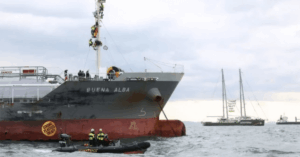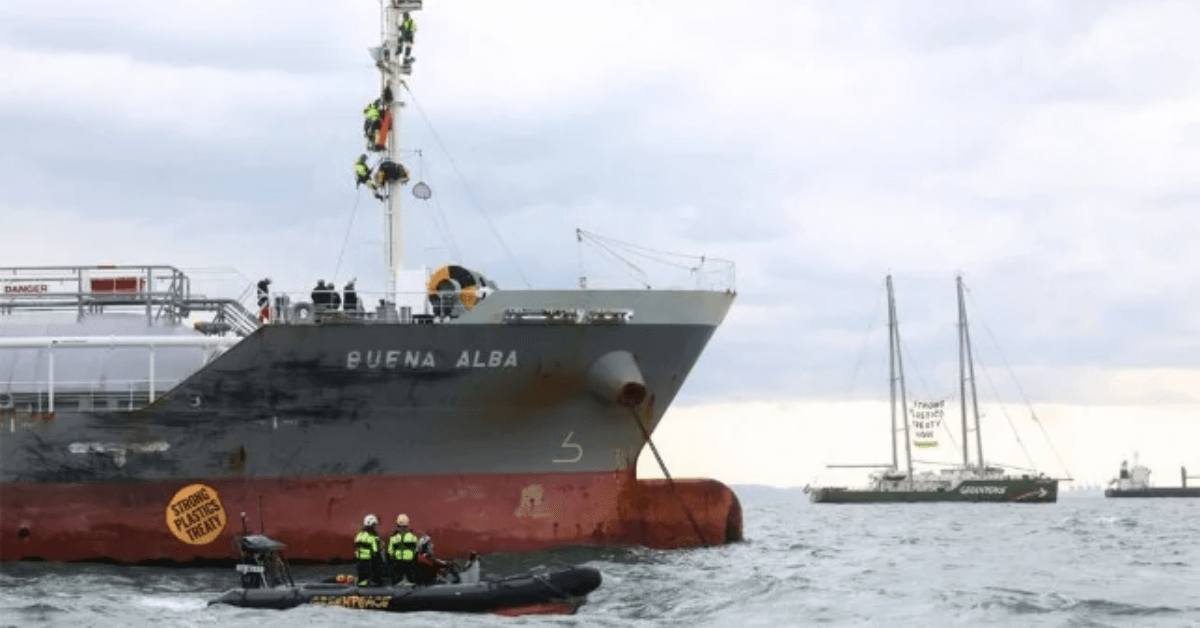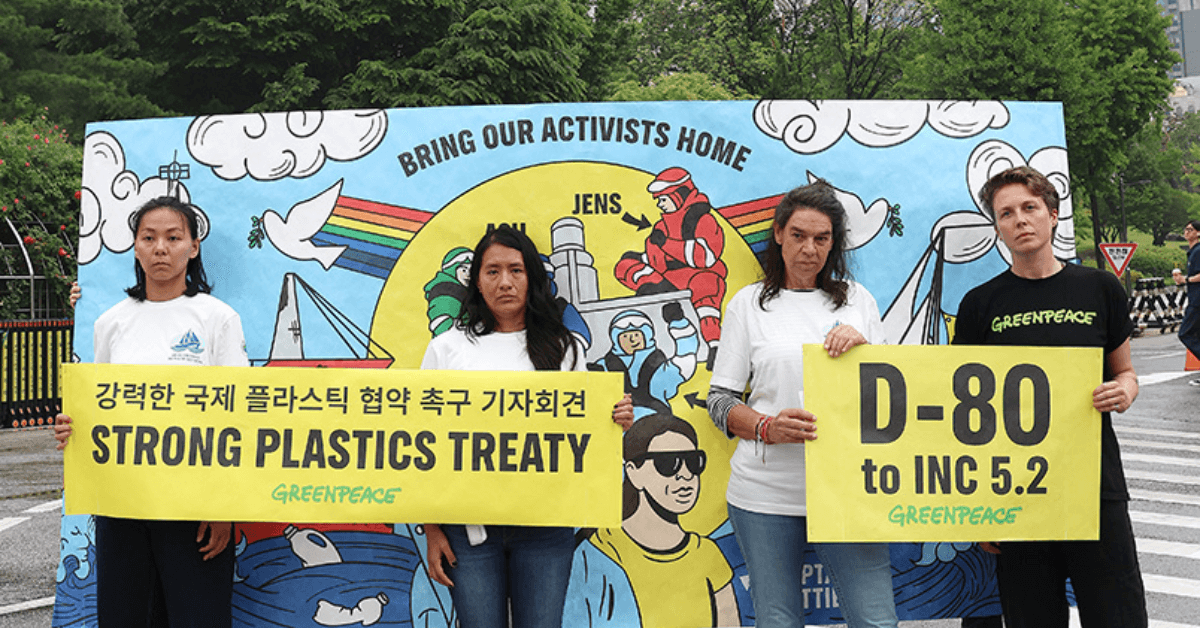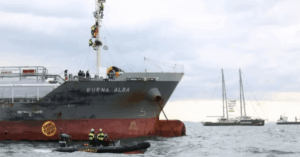
Salvage Tug Arrives To Tow Maersk Ship Adrift For Weeks After Explosion
May 17, 2025
Watch: In A Historic First, Royal Navy Warship Destroys Supersonic Missile
May 17, 2025

Five members of Greenpeace, including the captain of their ship Rainbow Warrior, appeared in a South Korean court on May 16, 2025, facing charges linked to a protest that happened in November 2024.
The activists boarded a Japanese-owned LPG tanker off the South Korean coast to call for a stronger international treaty on plastic pollution.
The protest happened on November 30, 2024, near the Daesan petrochemical complex during the fifth round of UN negotiations for a Global Plastics Treaty, known as INC-5.
The event was held in Busan, South Korea, and Greenpeace had timed its campaign to coincide with the talks. As part of its “Sailing for Change” tour in East Asia, the organisation used its ship Rainbow Warrior to support the message.
According to Greenpeace, four activists left the ship that morning and approached the Panama-flagged LPG tanker Buena Alba, which was at anchor and waiting to load toxic chemicals at the Hyundai Daesan Refinery.
The activists climbed aboard, scaled the mast, and hung banners calling for strict action against plastic pollution. They also painted the words “Plastics Kill” on the side of the 3,146 dwt vessel.
The four protestors were identified as Sam Rodrigues from Mexico, Alex Wilson from the United Kingdom, Ash from Taiwan, and Jens from Germany. Along with Hettie Geenen, the Dutch captain of the Rainbow Warrior, they were taken into custody by South Korean police and held for nearly two days during the investigation. Although they were released afterward, all five were ordered to stay in the country until the legal process was complete.
On May 16, they appeared for the first time at the Seoul Central District Court. According to South Korea’s Yonhap News Agency, they have been charged with unlawful intrusion onto a vessel and obstruction of business. The court continues to restrict them from leaving the country as the case proceeds.
Greenpeace has insisted that the action was peaceful and did not pose any danger to the crew or vessel. They also stated that the protest was meant to pressure governments to agree on a treaty that would reduce plastic production, which they describe as the root cause of plastic pollution.

Outside the court, Greenpeace East Asia Seoul held a press conference to show support for the activists and again called for a strong Global Plastics Treaty. The group displayed a large mural featuring the five individuals involved in the protest with the message, “Bring Our Activists Home.” This mural has been shared globally and used in solidarity protests held last month outside South Korean embassies by Greenpeace offices in 21 different countries.
One of the activists, British citizen Alex Wilson, was quoted in Greenpeace’s official release, saying that plastic pollution causes harm throughout its life cycle, especially during the production phase.
Wilson explained that the protest aimed to represent millions of voices demanding a global reduction in plastic production and claimed that petrochemical companies are lobbying to weaken the treaty.
Rainbow Warrior captain Hettie Geenen shared that the international support they received through solidarity actions served as a strong reminder that they were not alone. The gesture, according to her, gave strength to those facing legal proceedings.
Nara Kim, a Plastics Campaigner at Greenpeace East Asia Seoul, highlighted that during INC-5 in Busan, over 100 countries showed strong support for a treaty that includes production cuts. She pointed out that this progress came despite opposition from oil-producing nations.
With INC-5.2, the resumed session, scheduled to take place in August 2025 in Switzerland, Kim urged all countries, including South Korea, to continue working toward a binding agreement that protects people, ecosystems, and the climate.
In September 2024, a Danish court fined the group for trying to block tankers linked to the Russian oil trade in Danish waters. Later in December, Greenpeace settled a case with oil giant Shell after activists boarded a platform headed for the North Sea.
As part of the settlement, Greenpeace agreed to pay £300,000 (around $383,000) to the Royal National Lifeboat Institution (RNLI) and promised that their activists would avoid Shell’s North Sea facilities for a period ranging from five to ten years.
Reference: Greenpeace
Source: Maritime Shipping News


